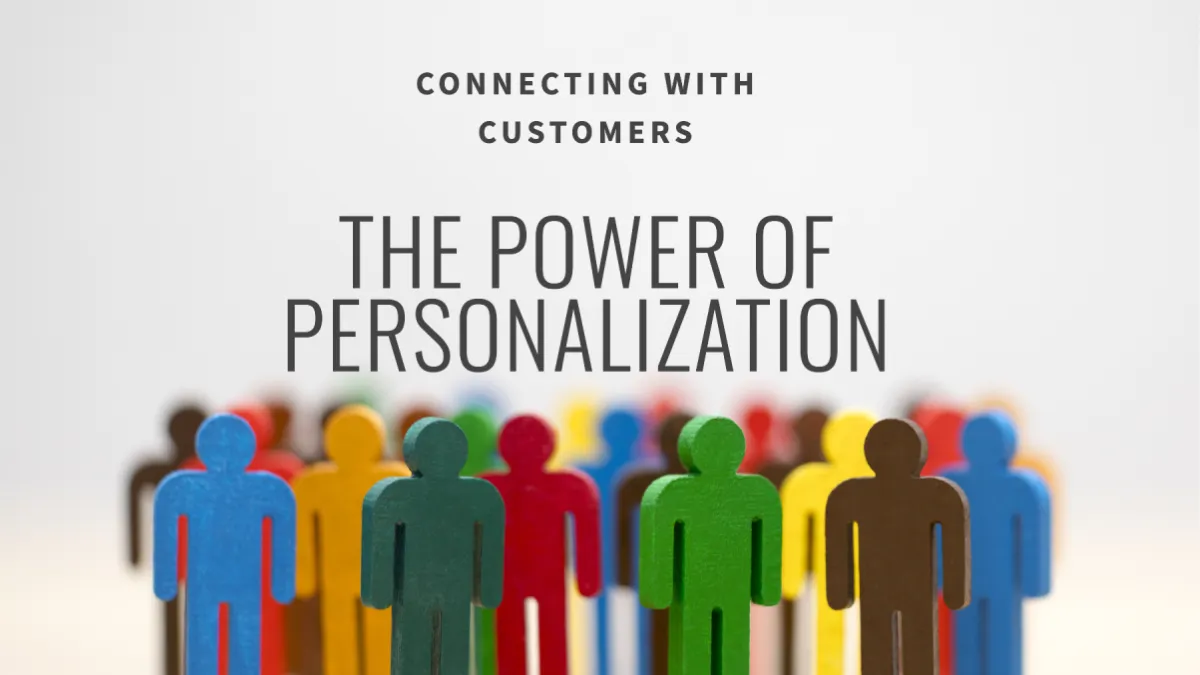In today’s competitive market, customers expect more than just basic interactions—they want experiences that feel unique and tailored to their needs. Personalization has become a powerful tool for businesses to build loyalty and increase sales. However, achieving this on a large scale can be challenging without the right technology. This is where Customer Relationship Management (CRM) systems come in. Modern CRMs enable businesses to deliver personalized experiences to thousands or even millions of customers at the same time.
What Is Personalization at Scale?
Personalization at scale means delivering customized messages, offers, and services to a large audience while making each customer feel valued as an individual. Instead of using a one-size-fits-all approach, businesses use data and automation to tailor interactions for each customer.
CRMs play a key role by collecting and analyzing data such as purchase history, preferences, behavior, and engagement patterns. This information helps businesses create relevant communications for every customer.
Why Is Personalization Important?
- Builds Customer Loyalty: Personalized experiences make customers feel understood and appreciated.
- Boosts Sales and Conversions: Relevant recommendations and offers encourage customers to make more purchases.
- Improves Engagement: Targeted messages are more likely to capture attention than generic ones.
- Enhances Customer Satisfaction: Personalized support and communication create positive customer experiences.
How CRMs Enable Personalization at Scale
1. Data Collection and Centralization
CRMs gather information from multiple touchpoints—website visits, emails, social media, and purchase history—into a single customer profile. This unified data allows teams to understand customers better.
2. Segmentation and Targeting
Using AI-powered segmentation, CRMs group customers based on behavior, demographics, or preferences. This helps businesses send the right message to the right audience.
3. Automated Campaigns
CRMs automate personalized email campaigns, product recommendations, and follow-up messages. These campaigns run automatically, saving time while improving customer engagement.
4. Predictive Analytics
Advanced CRMs use AI to predict customer behavior, such as when they are likely to make a purchase or leave a subscription. This allows businesses to take proactive steps to retain customers.
5. Omnichannel Personalization
CRMs ensure that customers get a consistent experience across all platforms—email, social media, chat, or in-store interactions.
Benefits of Personalization at Scale
- Higher Customer Retention: Personalized communication encourages long-term relationships.
- Improved Marketing ROI: Relevant campaigns lead to better response rates.
- Competitive Advantage: Businesses that offer personalized experiences stand out from competitors.
- Increased Revenue: Customers are more likely to buy when they receive targeted recommendations.
Real-World Examples of CRM Personalization
- E-commerce Stores: Recommending products based on browsing history.
- Real Estate Agencies: Sending property listings matching client preferences.
- Healthcare Providers: Reminding patients of appointments and personalized health tips.
How to Get Started with Personalization
- Choose the Right CRM with strong automation and analytics capabilities.
- Collect Quality Data from all customer touchpoints.
- Segment Your Audience based on behaviors and preferences.
- Create Dynamic Campaigns that adjust content for each user.
- Monitor Results and refine strategies to improve outcomes.
Conclusion
Personalization at scale is no longer optional—it is essential for business success. With modern CRM systems, companies can deliver unique, relevant experiences to every customer while managing large audiences efficiently. By leveraging data, automation, and predictive analytics, businesses can build stronger relationships, improve retention, and drive growth.
FAQs
1. What does personalization at scale mean in CRM?
It refers to delivering customized experiences to a large audience using CRM data, automation, and AI-driven insights.
2. How can CRM improve personalization?
CRMs collect customer data, segment audiences, automate campaigns, and provide predictive insights to tailor communication.
3. Why is personalization important for businesses?
It boosts customer satisfaction, loyalty, engagement, and sales by making customers feel valued.
4. Can small businesses achieve personalization at scale?
Yes, even small businesses can use affordable CRM tools to automate personalized interactions.
5. What is the role of AI in CRM personalization?
AI analyzes data, predicts customer behavior, and automates relevant recommendations to improve engagement.
